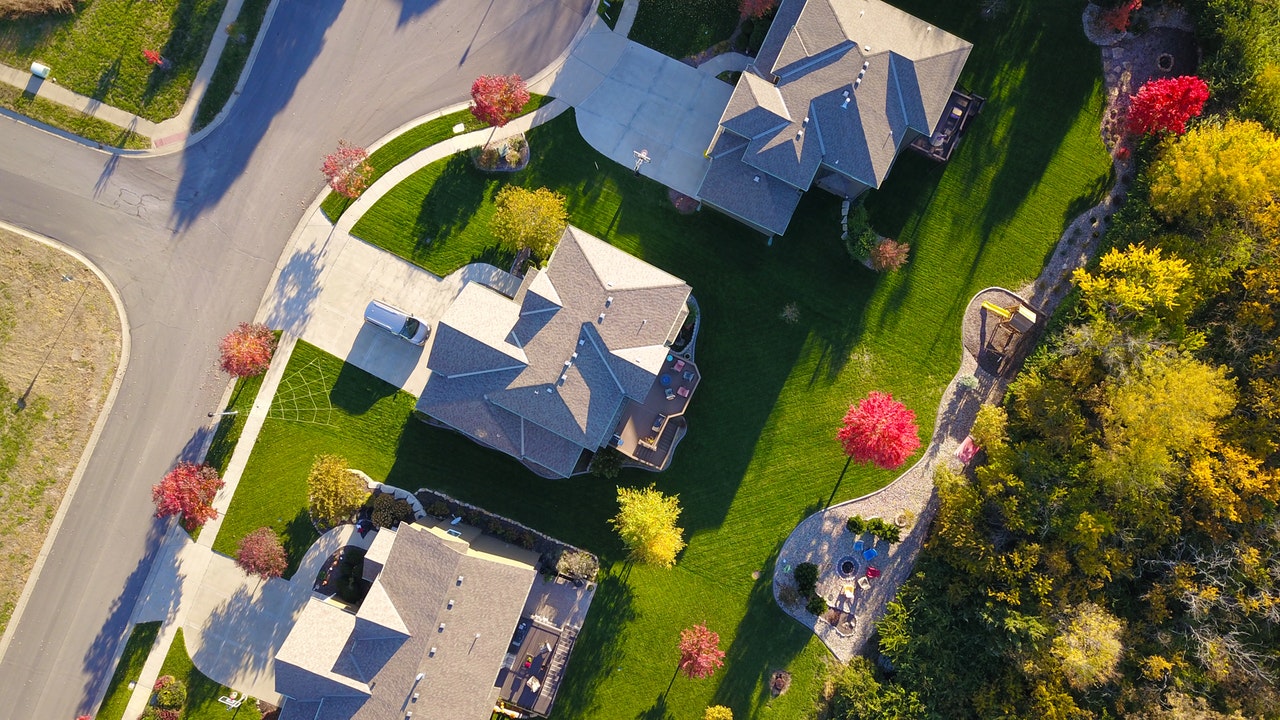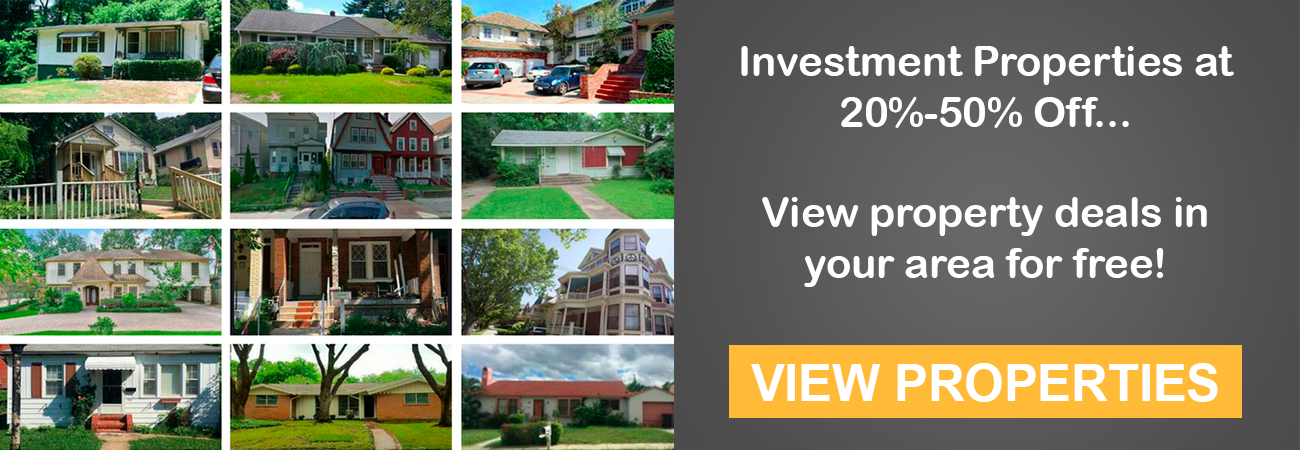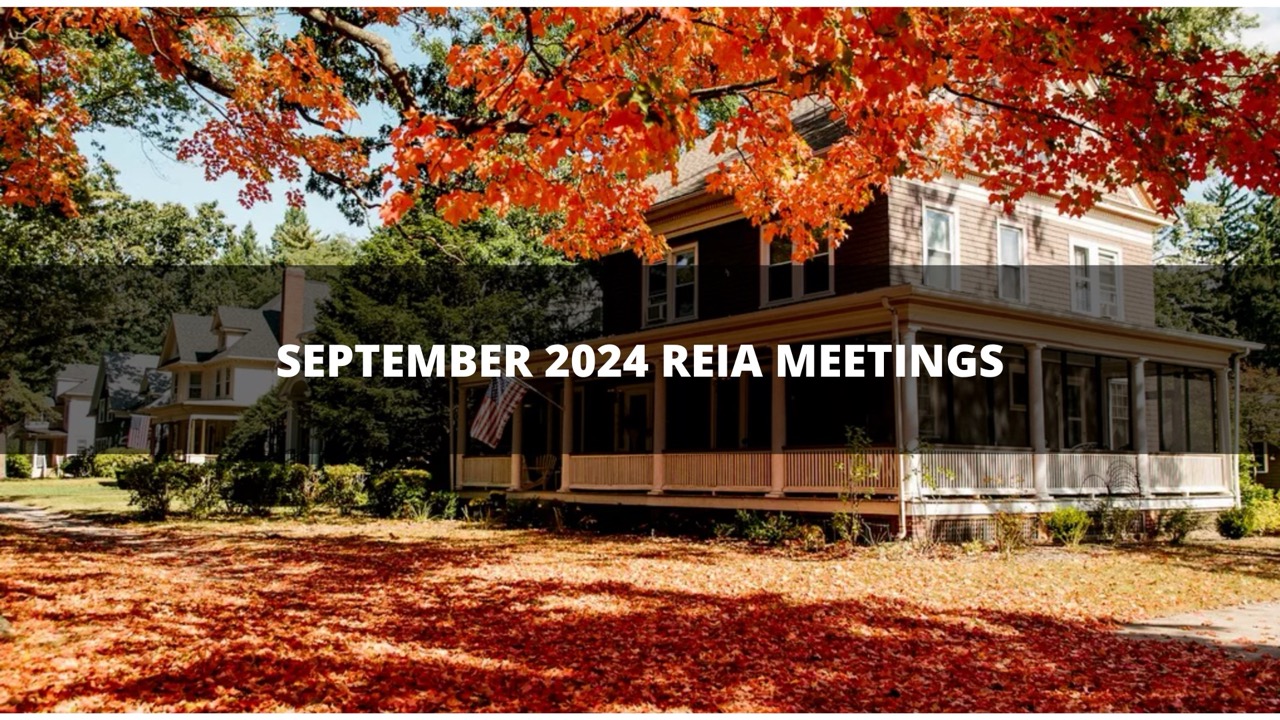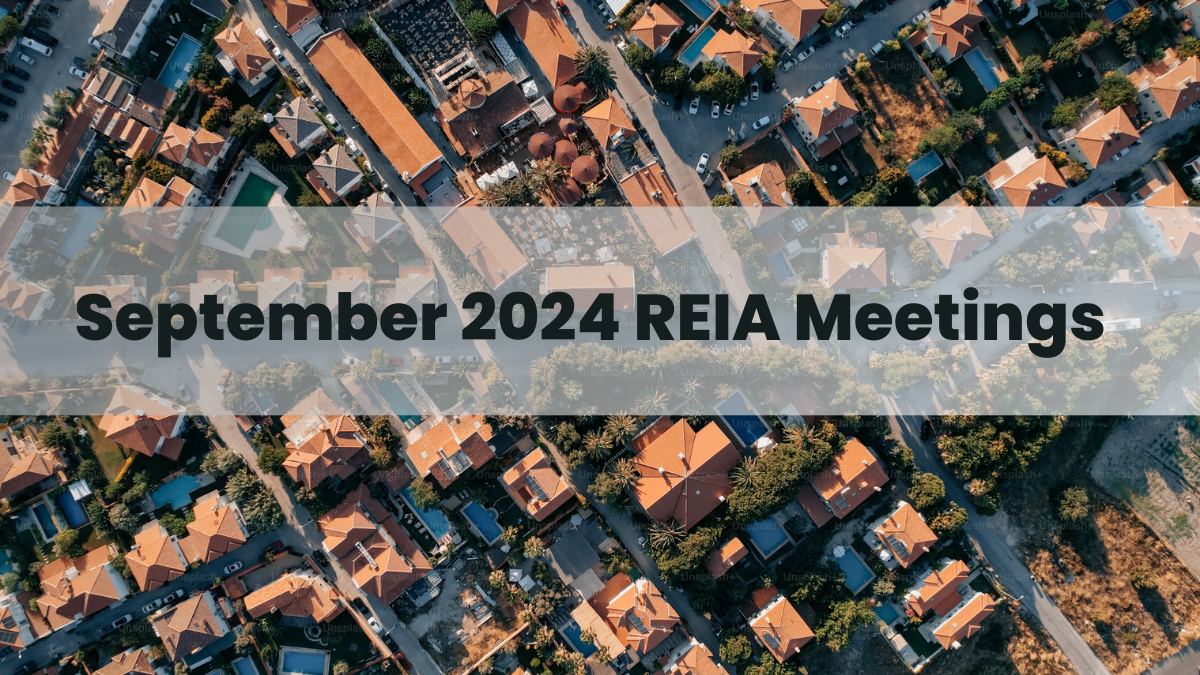5 Ways To Make Passive Income With Real Estate Investing
Many of us have dreamt of laying on a beach in paradise while checks are deposited into our bank account month after month. Part of the lure of real estate investing is to escape the 9 to 5 grind and become our own boss with the luxury of a passive income stream.
To obtain this ongoing freedom with real estate, it takes a lot of upfront work, a thorough assessment of your risk tolerance and a strategy that fits your particular situation.
Below we’ve outlined 5 strategies that produce ongoing cash flow for successful real estate investors, along with some of the risks and benefits inherent with each strategy.
1. Earn Passive Income Renting Single-Family Houses
Demand for single-family rental homes has never been higher and US housing stock is not expected to keep up with this demand, meaning that housing prices are likely to remain stable over the coming years. This price stability and accumulation of property value is just an added bonus when renting houses, as your cash flow will mainly come from monthly rent. Therefore, the biggest factor in your success will come from your ability to keep the property occupied.

One benefit of single family houses is that people generally tend to stay in houses longer than apartments or multifamily units. Vacancy is costly and tenant turnover is costly, so it’s valuable to find tenants that are likely to stay a long time. When you do have a vacancy period between tenants be sure to line up all your contractors and vendors (painter, cleaner, floor touch up) during the small time frame after the previous tenant moves out and before the new tenant views the property.
One downside of renting single family properties is that more can typically go wrong (and need expensive repairs) in a house than in a smaller rental unit. Therefore, it often makes sense to live somewhat close to your properties so it’s easy to check in when something goes wrong. That said, if you plan on hiring a full-time property manager, and are ok with paying 7% to 8% of rent, then you can diversify out of your local area and find investment properties in different states and cities where purchase prices might be more investor friendly. For truly passive income, where your monthly maintenance is minimum, it definitely pays to hire a property manager who can also help you keep the house rented.
In order to make a greater profit on your rental properties, it’s a good strategy to purchase houses that are in a distressed situation where you can add value by making repairs or taking them off the hands of a motivated seller who desperately needs to sell. On MyHouseDeals, our three main property categories are foreclosures, motivated seller leads and wholesale deals, so it’s a great place to start when looking for a rental property. On each property page, you’ll see an estimated cost of repairs and you’ll want to do your own research to decide the price to offer.
Once you purchase the property, make any necessary renovations and begin collecting rent from tenants, you’ll want that rental income to be slightly higher than your monthly mortgage monthly, but remember that much of your profit will be made by your monthly principal paydown as you gain more equity on the house.
As your net worth position goes up with increased home equity, you can take out secondary financing (if you want to) which acts as additional spending money that you don’t have to pay capital gains tax on (since your not selling the property). This doesn’t mean you shouldn’t be careful about taking extra debt, but just realize the increased equity creates an opportunity for increased cash flow.
Also note that there are significant tax deductions on real estate rental properties including property taxes, insurance, maintenance, management, utilities, reserves and depreciation. These tax benefits can act as another form of cash flow as you keep more of your money during tax season.
To learn more about single-family rental properties, check out MeetKevin’s Single Family House YouTube video.

2. Short Term Rental Passive Income With Airbnb
A client of ours named Salomon, an experienced Airbnb renter, feels it is the absolute best form of rentals… “you have a better return because it’s shorter periods of time.” With Airbnb rentals you can charge more for shorter periods of time, and guests generally don’t mistreat the property because they are paying that higher rate.
If you live in an area that’s attractive for travelers, Airbnb income can be outstanding. The trick to getting started is to obtain those initial reviews online to gain credibility and improve your ranking in Airbnb’s SEO listings. For the initial booking, you can always have a friend stay and leave a good review or drop your prices and make sure to treat those first guests like royalty.
MyHouseDeals has a plethora of properties that you can renovate and turn into Airbnb cash machines. Search zipcodes known to be popular with tourists and find a property that fits your criteria. You can choose to live in the house and rent an extra bedroom, or you can rent out the entire property. Note that if the property already has tenants when you purchase, you’ll want legal confirmation of when their lease ends so you don’t run into complications.
As a different option for Airbnb renting, our Facebook Live guest Brian Page discussed a strategy where you don’t even have to own the property. You can jump right in by leasing properties and putting them on Airbnb with the owner’s permission (in writing).
The secret is finding owners who don’t want to deal with short term rentals and convince them you will take care of the property while you rent it out. You’ll want to have a list of benefits ready to present to the owner such as the fact that short term renters won’t make modifications on properties and any damage will be covered by Airbnb’s insurance.
Similar to Salomon’s experience above, Brian has found that the cash flow is considerably higher with Airbnb rentals than taking on long term tenants. He points out that it’s important to develop an automated system for managing occupancy, maintenance and customer communication. To maintain passive income without the huge headaches you can outsource many of your Airbnb management tasks or hire a full-time property manager.
3. Investing In A Duplex: Rent Out One Side and Live in the Other
Duplexes can be a great strategy for less experienced real estate investors who may live in one side of the unit and rent out the other, essentially having the tenant pay for your mortgage and expenses. This is in contrast to sharing a single-family home, which can be awkward living with a tenant, especially if they are not family.
Additionally, duplexes are relatively cheap and hold their value well. Compared to a single-family home you’ll usually pay less per square foot and during recessions their value won’t drop as sharply, because demand generally remains high from real estate investors.
When looking for financing for a duplex, you’re in luck because they often qualify for government subsidized loans such as a FHA, VA or USDA loan with lower interest rates and other benefits. Private money and hard money lenders will also look favorably if you can mitigate vacancy risk by covering payments with your own income when necessary, since you’re living in the other unit.
Despite the benefits, you’ll want to be careful that you don’t purchase a duplex that’s in such bad condition it’s irreparable. Rehabs are great, but don’t buy a lemon. Also ensure that your duplex is located in a decent area because a bad neighborhood will scare off those much needed tenants.
As with any investment property, you’ll want to carefully do the numbers before making an offer. We recommend creating a spreadsheet that calculates monthly cash flow based on total rental income minus expenses (such as utilities, vacancy costs, taxes, insurance, maintenance costs and management fees) minus mortgage expense. Additionally you’ll need to make a good estimate for closing costs, rehab costs and ARV (after repair value). All of this will tell you whether the asking price is reasonable or whether you need to do some negotiation.
If the numbers work and you find your rental income subsidizes your mortgage enough to live comfortably, you may have found the perfect investment property. This unique form of passive income allows you to live for free and is a great way to launch your real estate investing career. Duplexes can be hard to find because they are coveted by investors, so when you find a good deal, don’t pass it up!
To learn more about investing in duplexes, check out Teddy Smith’s Duplex Investing Pros & Cons on YouTube

4. Make Big Profits With Multifamily Income Properties
Multifamily real estate investing is completely different than single-family real estate investing, as it’s a much more complicated and requires much more sophistication as a real estate investor. Because of the complexity, any mistake you make will be multiplied and can cause significant financial damage, so you really need to know what you are getting into. That said, you can make a lot more money with multifamily units and take your investing to a whole nother level.
The most important thing to understand in multifamily investing is how to calculate your cap rate. This tells you the profitability of your investment and needs to be analyzed before you purchase the property. Your cap rate is calculated as net operating income (gross income minus operating expenses) divided by the property’s purchase price.
Like any real estate investment, location is extremely important and cap rates will differ depending on whether the area is considered an A area (very nice), B area, C area or D area (warzone). Multifamily investing is all about the commercial income potential and how much it can eventually be rented out for.
The small aesthetic details that are extremely important in single-family investing are less important with multifamily units. You’re better off buying a rundown property in a good area, so you can turn it around for a big fat profit. It’s all about raising that total monthly rental income.
On MyHousedeals you can search properties by city as well as property type such as Multifamily, Duplex or 4plex. Explore different types of properties in different areas to maximize your profit potential.
If you purchase a multifamily unit that already has tenants, you’ll likely want to make improvements while they are living in the building, so you’ll need to convince them why those improvements are worth an increase in rent. As you increase the income on the property by making improvements, you will directly increase the value of the property.
If you’re new to real estate, multifamily investing can be overwhelming but if you are comfortable and confident in how to make the numbers work it can be a lot of fun and extremely profitable. To live this passive income dream, you may want to hire a full-time property management company. If you do it right, this is where the big money is made.
To learn more about multifamily investing, check out Fruitful Investor’s multifamily YouTube video.
5. Earn Interest Payment Passive Income as a Private Money Lender
Most real estate investors find themselves in the position of looking for private money, hard money, bank loans or government loans to fund their property acquisitions. But if you’re fortunate enough to have significant liquid assets you can find yourself on the other side of the table with the ability to make strong returns by lending money.
If you approach your lending strategy the right way it can be relatively low risk and set you up with ongoing cash flow. Before you jump in, be sure that you can still comfortably meet your expenses after setting aside the money you’re lending. Don’t use all your savings just because you find a good opportunity, as you should always have an emergency buffer of cash available.
Once you decide you’re ready to lend, then you’ll want to set your investment criteria. You’ll need to do research into the various risks, returns and complexities of lending for different property types such as residential, multifamily, condos, townhouses, flips, rentals, owner-occupied, short-term, long-term, etc.
As you begin to consider specific investment opportunities, you’ll want assurance of property purchase prices not only via your borrower’s analysis but also via broker’s price opinions (BPOs) or other forms of professional appraisals. You’ll also want detailed proof of the borrower’s track record including dates and past returns.
Another important factor is determining the amount to loan for each property investment, whether 60%, 80% or 100% of ARV (the standard is around 80%). As a private lender you also have the flexibility of deciding what interest rate you’d like to charge, whether 6%, 10% or 15%, which accrues monthly. Or you can charge points, meaning you get a percentage of the closing price or total loan amount.
All of this leads to your total required return (ROI) for your specified loan period, which you need to decide on beforehand and stick to based on your investment criteria discussed above.
Along with analyzing all the numbers, you’ll want to make sure all the paperwork is handled correctly. Use an attorney to draft your lending agreement and promissory notes, and go through an escrow company and a title company so you know your money is handled legally and professionally.
If you want to reduce the complexity and risk inherent in private lending, you can also work with a private lending company who will offer lower returns but more security and less upfront work on your side.
Whatever strategy and criteria you use to undertake your lending strategy, always make sure to do your due diligence. If you find the right borrowers and investments, you could find yourself with great returns and passive income with healthy ongoing cash flow.
To begin lending private money immediately and access many potential borrowers, sign up as a lender on PrivateMoneyGoldmine.
To learn more about private money lending, check out Frank Chan with REIClub on YouTube.
Now Choose Your Passive Income Strategy and Build The Life of Your Dreams
Many millionaires have used one or several of these strategies to create passive income with real estate investing. It’s not always easy to get started and in general you’ll need some money (at least an income) to get your business off the ground. But if you’re dedicated and take the time to do your due diligence, you can eventually set yourself on autopilot and watch the cash flow roll in.
Whether you’d like to supplement your current income, go full-time into real estate investing or retire and let property managers do all the work, the key is to take the first step towards whatever strategy works best for you.






